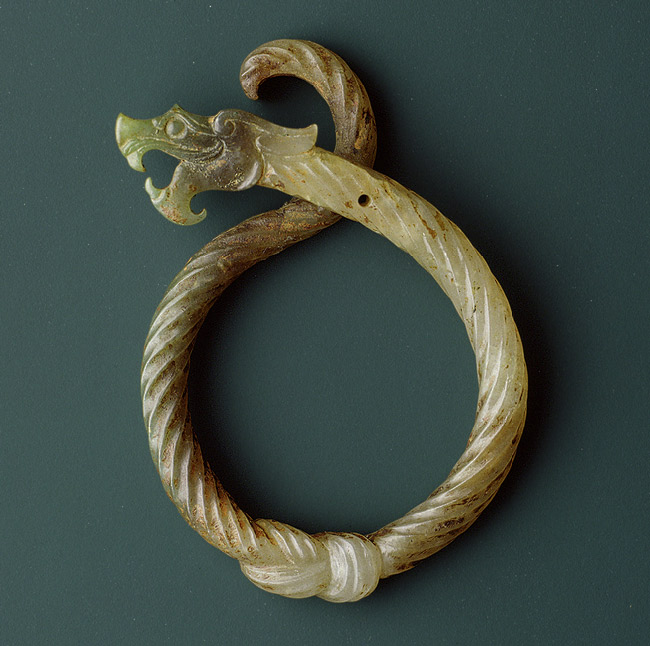Interloper wrote:klonk wrote:Fingolfin wrote:Ouch.Interloper has touched it with a needle.
Not precisely. I don't see any point in interrupting the fun, if people are falling down and calling each other "sensei." For where's the harm?
klonk,
I would not be so hasty to assume that the contemporary aikido you see today, with people voluntarily throwing themselves and "blending," is the Aikido created and practiced by Morihei Ueshiba.
Instead, I would hasten to find and get my hands on one of the people reputed to have genuine aiki/internal skills so you can get at least an inkling of the skill that Ueshiba had, and which was largely lost to his first-generation students, and completely lost to generations thereafter.
You may not believe that Ueshiba had anything, but that is based on what you have observed in today's aikido. That is a mistake. There are reasons why aikido ended up as it did, but you would have to be motivated to do a little research to better understand it. I recommend you read Ellis Amdur's book, "Hidden in Plain Sight" (order it here:
http://www.edgework.info/buy.html ) for starters. No, I don't get any kickbacks from Mr. Amdur. It's just a good, thoughtful book that has some great historical info along with the author's opinions and conjectures, drawn from his decades of august martial knowledge and experience.
That's a very interesting book. As it turns out Mr. Amdur is from Pittsburgh originally, and when he visited 1-2 years ago, he met with my teacher (Zhang Yun). Later when the book came out, I told my teacher about one of its main points: Daito-ryu as Ueshiba's teacher practiced it, had similar internal skills found in Chinese internal martial arts, that it was passed down to Ueshbia and very few others, but it's mostly lost today in Aikido, that they need to recover it by learning it from Chinese martial arts. To which my teacher responded "that's great for Aikido people, but we're in danger of losing those ourselves, where can we go to recover it?!"
It's sad but true, take an average person to see a large random sample of Taiji schools, and they'll think it look just as 'fake' as modern Aikido.
One thing interesting about this fakeness though, it's actually a key indicator that this was originally a very good lineage. In Taiji Quan there's an old adage, "good Taiji Quan looks like magic (fake trick)". The bystanders, without touching the person executing the skill, couldn't even understand why the other guy cannot fight back. When my oldest brother Strider came home from China, he showed to his grandfather tape of himself sparring with Master Wang Peisheng. His grandfather was a real boxing insider: professional boxer and trainer. And his grandfather became frustrated and angry watching it "hey, right there, he's grabbing your front hand, and he's going through this winding motion to strike your neck with the other hand. Why didn't you just punch him with your free hand, you had all this time! And why did you fall before his striking hand reach you, and falling forward sideways instead of backwards, what is going on, is this some type of trick?! Are you trying to humor him?"
Strider has to explain to him "the hand that's grabbing mine, I felt like his entire weight is on it, I was losing balance. It may be a long time in real time, by when you're losing balance, you get really tense, you're not aware of time, you're only thinking of recovering. And the reason I fall is not he has some invisible force coming out of his striking hand, but because his two hands are perfectly connected, the downward force of the striking hand is transmitted completely to the hand holding mine. So before that striking hand reached me, that force (unseen in the other hand) already threw me down..."
You can see how anyone who had felt good Tongbei or Taiji can easily understand what is going on here, but if you haven't, how could you know? This is why you never seen external martial art people faking Ling Kong Jin (the above example is not Ling Kong Jin). Only when someone in a group, someone who is a real internal arts master and done this regularly, do his students even know this kind of thing is even possible. So that they would try to replicate it in their own practice. Of course if you don't have the skill, it's just mutual deception. What you have left is empty external movement which, without the necessary internal force (in example above), couldn't possibly produce the strange effects that baffles non-practitioners. Obviously if that's all Ueshiba had, Aikido wouldn't be famous in the first place. That kind of fake skill even an untrained person can defeat.





 No one here is saying that contemporary aikido has IP/IT methods. We're agreeing that it doesn't. The point is, some people in aikido recognize this and are now seeking to restore internal method to it.
No one here is saying that contemporary aikido has IP/IT methods. We're agreeing that it doesn't. The point is, some people in aikido recognize this and are now seeking to restore internal method to it.